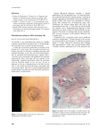 September 1999 in “The Journal of The British Menopause Society”
September 1999 in “The Journal of The British Menopause Society” The document concludes that skin aging in women can be caused by UV exposure and hormonal changes, and treatments like hormone replacement therapy and various skin therapies can help.
 September 1997 in “Journal of The European Academy of Dermatology and Venereology”
September 1997 in “Journal of The European Academy of Dermatology and Venereology” Examining scalp tissue under a microscope helps diagnose and understand hair loss diseases.
 November 2024 in “Health Science Reports”
November 2024 in “Health Science Reports” Light/laser therapy can effectively increase hair density in some types of alopecia, especially androgenic alopecia and alopecia areata.
 April 2021 in “The journal of investigative dermatology/Journal of investigative dermatology”
April 2021 in “The journal of investigative dermatology/Journal of investigative dermatology” 6.1% of patients seeking PRP for hair loss had undiagnosed cicatricial alopecia, which PRP cannot treat.
 42 citations,
October 2012 in “Dermatologic Clinics”
42 citations,
October 2012 in “Dermatologic Clinics” Trichoscopy is a useful tool for diagnosing different hair and scalp diseases without surgery.
 20 citations,
April 2011 in “British Journal of Dermatology”
20 citations,
April 2011 in “British Journal of Dermatology” Reflectance confocal microscopy can tell apart white dots on the scalp as either sweat gland ducts or hair follicle openings.
 10 citations,
January 2015 in “Skin appendage disorders”
10 citations,
January 2015 in “Skin appendage disorders” Low-cost videomicroscopes are not as reliable as standard videodermatoscopes for scalp examination due to lower image quality.
 10 citations,
January 2003 in “Journal der Deutschen Dermatologischen Gesellschaft”
10 citations,
January 2003 in “Journal der Deutschen Dermatologischen Gesellschaft” Hydroxychloroquine helped improve scleromyxoedema in patients, but caused side effects in some.
 9 citations,
July 2018 in “European Journal of Dermatology”
9 citations,
July 2018 in “European Journal of Dermatology” Brodalumab effectively treated a man's severe hand and foot psoriasis.
 9 citations,
January 1987 in “Journal of The American Academy of Dermatology”
9 citations,
January 1987 in “Journal of The American Academy of Dermatology” A man lost a lot of scalp hair quickly after stopping minoxidil, but it grew back with mild male pattern baldness.
 7 citations,
August 2019 in “Clinical and Experimental Dermatology”
7 citations,
August 2019 in “Clinical and Experimental Dermatology” The Mona Lisa's high forehead and sparse eyebrows might be due to a hair loss condition or Renaissance fashion trends, but the actual reason is unknown.
 4 citations,
December 2017 in “American Journal of Dermatopathology”
4 citations,
December 2017 in “American Journal of Dermatopathology” Naked hair shafts are significantly associated with scarring hair loss and may help diagnose it, especially when multiple are found.
 3 citations,
September 2018 in “Dermatologic Surgery”
3 citations,
September 2018 in “Dermatologic Surgery” Platelet-Rich Plasma (PRP) can improve hair loss in cicatricial alopecia cases, but treatment must be ongoing and results vary among patients.
 February 2013 in “Archives of Disease in Childhood: Education & Practice”
February 2013 in “Archives of Disease in Childhood: Education & Practice” Different types of alopecia in children require specific diagnoses and treatments.
 January 2012 in “Yearbook of Dermatology and Dermatologic Surgery”
January 2012 in “Yearbook of Dermatology and Dermatologic Surgery” Some African American women experience central scalp hair loss, often linked to a history of fungal scalp infection.
 59 citations,
March 2020 in “Journal of Biomedical Science”
59 citations,
March 2020 in “Journal of Biomedical Science” Understanding how hair follicle stem cells work can help find new ways to prevent hair loss and promote hair growth.
 46 citations,
November 1997 in “Journal of Neural Transmission”
46 citations,
November 1997 in “Journal of Neural Transmission” Seborrhea in Parkinson's disease may be linked to hormones, not autonomic impairment.
 32 citations,
May 1995 in “Contact Dermatitis”
32 citations,
May 1995 in “Contact Dermatitis” Minoxidil can cause allergic reactions, but testing helps identify the cause.
 21 citations,
March 2019 in “Journal of The American Academy of Dermatology”
21 citations,
March 2019 in “Journal of The American Academy of Dermatology” The review highlights the need for more research on transgender dermatology, the role of dermatologists in gender affirmation, and the effects of hormone therapy on skin and hair.
 17 citations,
June 2016 in “Australasian Journal of Dermatology”
17 citations,
June 2016 in “Australasian Journal of Dermatology” Treatment with dutasteride, minoxidil, and artificial hair transplantation improved appearance but caused folliculitis.
 15 citations,
September 2015 in “Journal der Deutschen Dermatologischen Gesellschaft”
15 citations,
September 2015 in “Journal der Deutschen Dermatologischen Gesellschaft” Skin doctors should recognize and treat conditions like hair-pulling and skin-picking early, often using therapy and medication, to help 50-70% of patients.
 15 citations,
November 2012 in “International Journal of Dermatology”
15 citations,
November 2012 in “International Journal of Dermatology” The conclusion is that hair loss from CCCA may be genetic and not solely caused by hair grooming practices.
 13 citations,
February 2006 in “Clinical and Experimental Dermatology”
13 citations,
February 2006 in “Clinical and Experimental Dermatology” A benign tumor developed at a girl's BCG vaccination site, not previously linked to the vaccine.
 10 citations,
January 2016 in “Dermatology online journal”
10 citations,
January 2016 in “Dermatology online journal” Adults with persistent scalp issues unresponsive to typical treatments should be tested for the fungal infection tinea capitis to start the right antifungal medication.
 9 citations,
July 2018 in “International Journal of Dermatology”
9 citations,
July 2018 in “International Journal of Dermatology” White and yellow dots indicate severe female hair loss in dark skin.
 7 citations,
May 2005 in “Experimental Dermatology”
7 citations,
May 2005 in “Experimental Dermatology” Two mouse mutations cause similar hair loss despite different skin changes.
 5 citations,
February 2019 in “The New England Journal of Medicine”
5 citations,
February 2019 in “The New England Journal of Medicine” Certain mutations in the PADI3 gene may increase the risk of developing a type of scarring hair loss common in women of African descent.
 3 citations,
May 2018 in “European Journal of Dermatology”
3 citations,
May 2018 in “European Journal of Dermatology” Photodynamic therapy may not work for erythroplasia of Queyrat and could lead to invasive squamous cell carcinoma.
 3 citations,
December 2013 in “Journal of Dermatology”
3 citations,
December 2013 in “Journal of Dermatology” Scanning electron microscopy revealed four distinct hair root shapes in alopecia areata, suggesting a less invasive diagnostic method.
 2 citations,
January 2013 in “Hair therapy & transplantation”
2 citations,
January 2013 in “Hair therapy & transplantation” Hair transplants can be a treatment for scarring hair loss if there's good blood flow and no active disease.






























